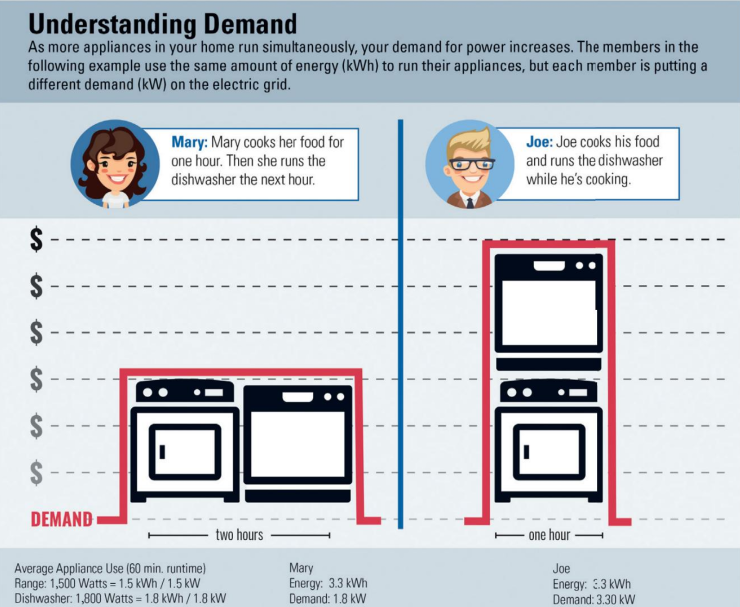To account for the cost of meeting demand, Midwest is implementing a demand charge to the residential billing structure starting in September. Residential members who use more than 20 kWh in one hour (about 5% of members) will receive a $20 charge on their bill. This will not affect your bill if you have normal usage. (The average residential member uses a demand of about 7 kWh.) It may affect those with very high demand from grain dryers, pool heaters, electric vehicle chargers, etc.
The demand charge is determined based on the highest demand recorded every hour. This charge is added to the member's bill alongside the Service Availability charge. These charges reflect the cooperative's costs associated with infrastructure upgrades, capacity planning, and ensuring reliable service during demand periods.
The implementation of residential demand billing encourages members to manage and reduce their demand, leading to more efficient energy consumption patterns. By doing so, customers can effectively control their electricity costs and contribute to the overall stability and efficiency of the cooperative's electrical system.


